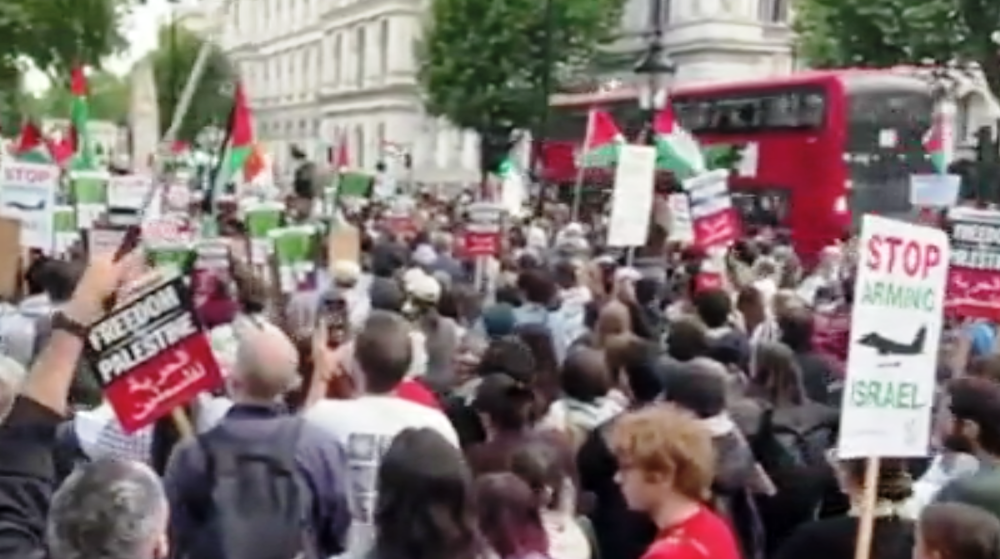The Labour party and alleged anti-Semitism: What’s really going on?
It has been reported that Labour MP Chris Williamson has been suspended, yet again, on charges of anti-Semitism. The outspoken MP was last suspended in February after claiming that Labour had given “too much ground” over the issue.
A key ally of Labour leader Jeremy Corbyn, Williamson’s latest suspension will re-ignite the debate over alleged anti-Semitism in the party, and will almost certainly be used by opponents of Corbyn within the party to undermine his leadership.
The anti-Semitism row erupted three years ago after the Labour party initially refused to adopt a controversial definition of anti-Semitism devised by a pro-Israel group, the International Holocaust Remembrance Alliance (IHRA).
The Labour party, specifically Jeremy Corbyn and his inner circle, subsequently came under intense pressure to adopt the definition, and a concerted campaign of intimidation, by pro-Israel groups, sought to undermine the left-wing ideologues and activists who spearheaded the resistance movement within Labour.
Labour activists and British political analysts generally viewed the pressure campaign as an attempt by the IHRA and allied groups to ban any criticism of Israel and its Apartheid-style policies, or failing that, to make such criticism prohibitively costly in political terms.
Consequently, several MPs and leading Labour party activists, notably Naz Shah, were named and shamed as part of the pressure campaign and forced to retract previous criticism of Israel.
But the pressure campaign claimed its biggest scalp in the form of ex-London mayor Ken Livingstone. A veteran Labour leader, Livingstone was suspended from the party against the wishes of Labour leader Jeremy Corbyn.
To Labour party activists, in addition to a significant number of outside observers, it seemed that the pro-Israel pressure campaign had two core objectives. Firstly, to stifle criticism of Israel in the Labour party, and by extension, to oust key leaders and activists who adopted a balanced position on Middle Eastern politics. Secondly, the campaign sought to sabotage Corbyn’s leadership by way of restoring the Blairites’ hegemony.
Labour activists and independent political analysts pointed to Corbyn’s irreconcilable opponents within the party, notably deputy leader Tom Watson, to support their claims that the anti-Semitism issue is a contrived row designed to oust Corbyn.
This view is backed by authentic Jewish voices in the Labour movement, notably the Jewish Voice for Labour, who strenuously deny that the Labour party is institutionally anti-Semitic.
To underline the dishonesty and hypocrisy surrounding this issue, the same voices point to the Conservative party’s failure to address widespread Islamophobia within its ranks.
The general consensus in the Labour party appears to be that the groundless anti-Semitic accusations is a ploy to forestall a re-adjustment of British foreign policy toward the Middle East once the Labour party achieves power.

Over 800 British judges, lawyers call for UK to sanction Israel over Gaza

Thousands rally outside British PM’s office over arms sales to Israel amid Gaza genocide

Thousands of Greeks protest Gaza genocide outside Israeli embassy
Pezeshkian touts Iran, Oman capacity to build strategic connections
Iran felicitates Venezuela on peaceful parliamentary, regional elections
For King and BP: How Britain’s MI6 infiltrated Libya to plunder its oil resources
Iran, Oman sign 18 MoUs during President Pezeshkian's visit
Israeli drone strike kills one in southern Lebanon in violation of ceasefire
US delivers 90,000 tons of weapons to Israel since Gaza genocide
Discover Iran: Khuzestan as Iran’s emerging renewable energy powerhouse
VIDEO | Press TV's news headlines







 This makes it easy to access the Press TV website
This makes it easy to access the Press TV website